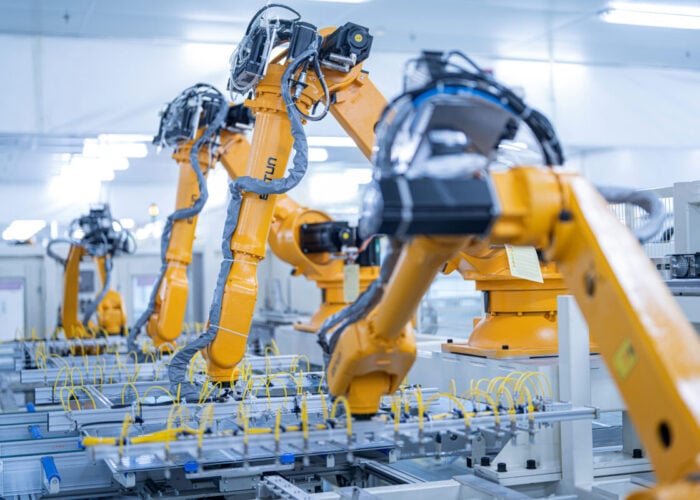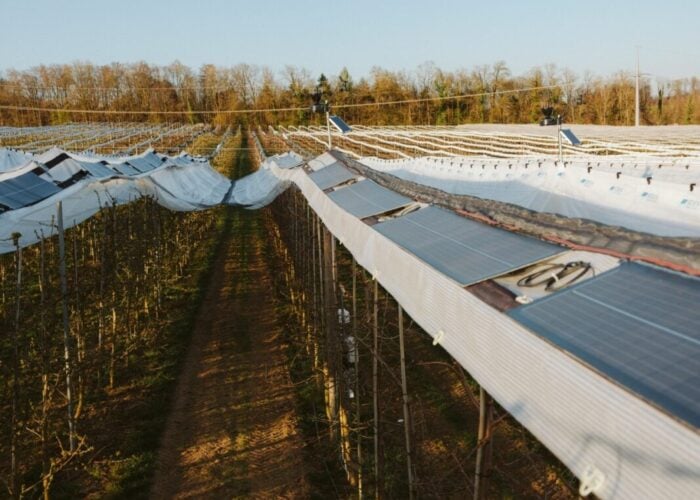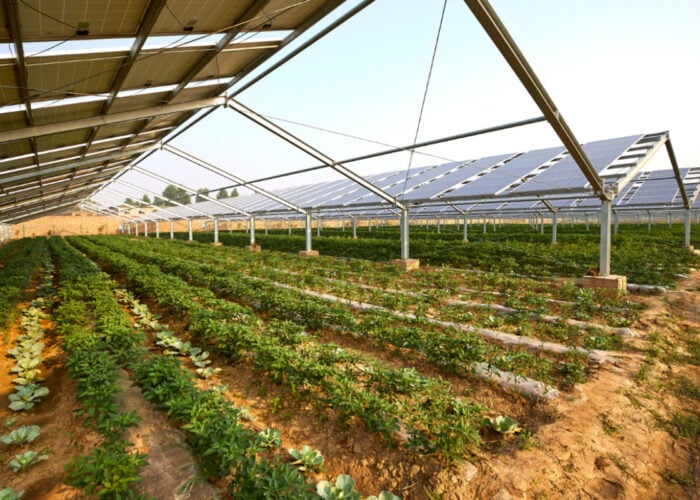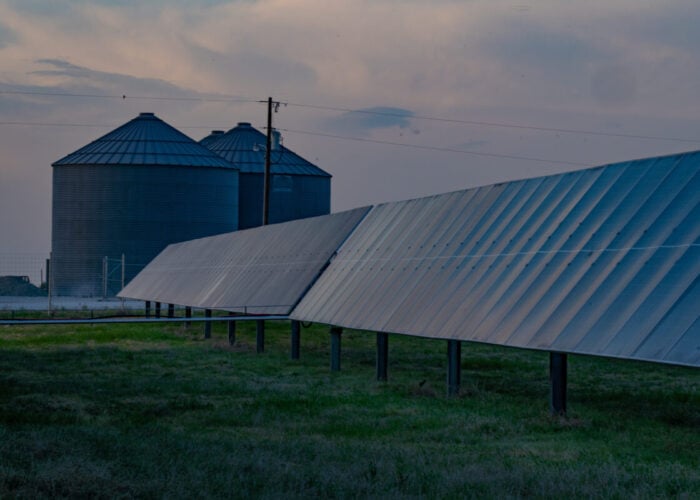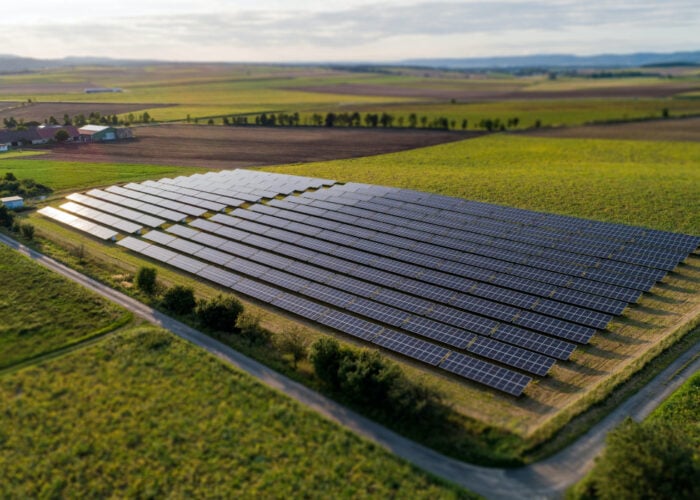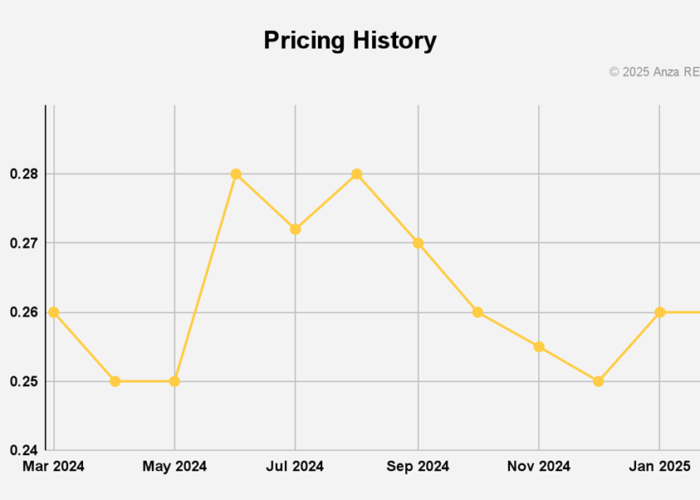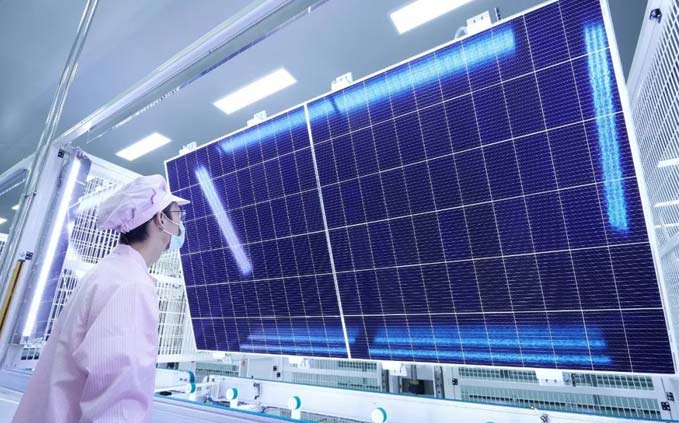
Chinese solar company Huasun has launched its latest series of N-type silicon-based heterojunction (HJT) solar cells and modules. This range of new products includes the Himalaya V-ocean series, the G10 series and the M6 series, and the company plans to deploy the majority of these cells and modules in residential, commercial and large-scale utility areas.
Market & applications
Alongside the cells and modules for residential, commercial and utility areas, the series also includes bifacial modules, as well as the Himalaya V-ocean series, designed for use in floating solar farms, and products designed to be deployed in agricultural settings.
Unlock unlimited access for 12 whole months of distinctive global analysis
Photovoltaics International is now included.
- Regular insight and analysis of the industry’s biggest developments
- In-depth interviews with the industry’s leading figures
- Unlimited digital access to the PV Tech Power journal catalogue
- Unlimited digital access to the Photovoltaics International journal catalogue
- Access to more than 1,000 technical papers
- Discounts on Solar Media’s portfolio of events, in-person and virtual
Or continue reading this article for free
Industry challenges
As solar power grows to account for more of the world’s energy mix, ensuring each solar module operates as efficiently as possible is of interest to many in the sector. HJT cells use two technologies, a crystalline silicon cell placed between layers of thin-film silicon, to deliver greater conversion efficiency over a long period of time.
Technical solution
Huasun’s latest generation of HJT cells look to capitalise on this high conversion efficiency. In 2022, cells in the G10 series were shown to have a maximum conversion efficiency of 26.81%, and two of the company’s HJT cells, the HS-210-B120 and HS-210-B132, received favourable scores from the latest round of PVEL testing.
Unique features & benefits
Through testing by PV Evolution Labs (PVEL) for its latest PV Module Reliability Scorecard, these cells in particular impressed in the thermal cycling and damp heat tests, important assessments of a module’s resilience in conditions where temperature and humidity can vary, and mechanical stress tests, which show how easily the module is likely to crack or break, and whether this will cause it to lose power.
In the mechanical stress test sequence (static load + dynamic load + damp heat cycle + damp freeze cycle), power degradation of the Himalaya G12 series modules was only 1.29%, demonstrating the capabilities of Huasun’s double-glass 210 large-cell format and HJT modules. Average power degradation rate of 1.2% was measured across Huasun’s modules in all six tests conducted by PVEL.
The cells’ strong performance suggests that they are likely to endure many of the conditions that can interfere with solar power generation over a long period, such as variations in temperature over the course of the year.
Availability
Cells in the Huasun G10 series are available now, while cells and modules in the Himalaya series were first unveiled last week at Intersolar Europe.

